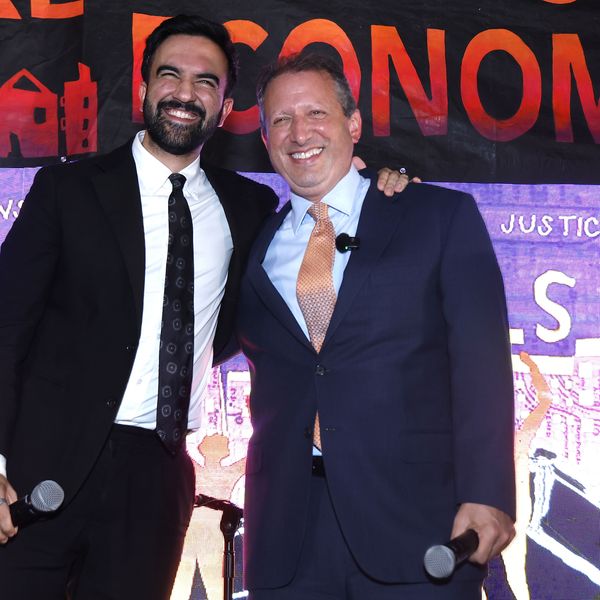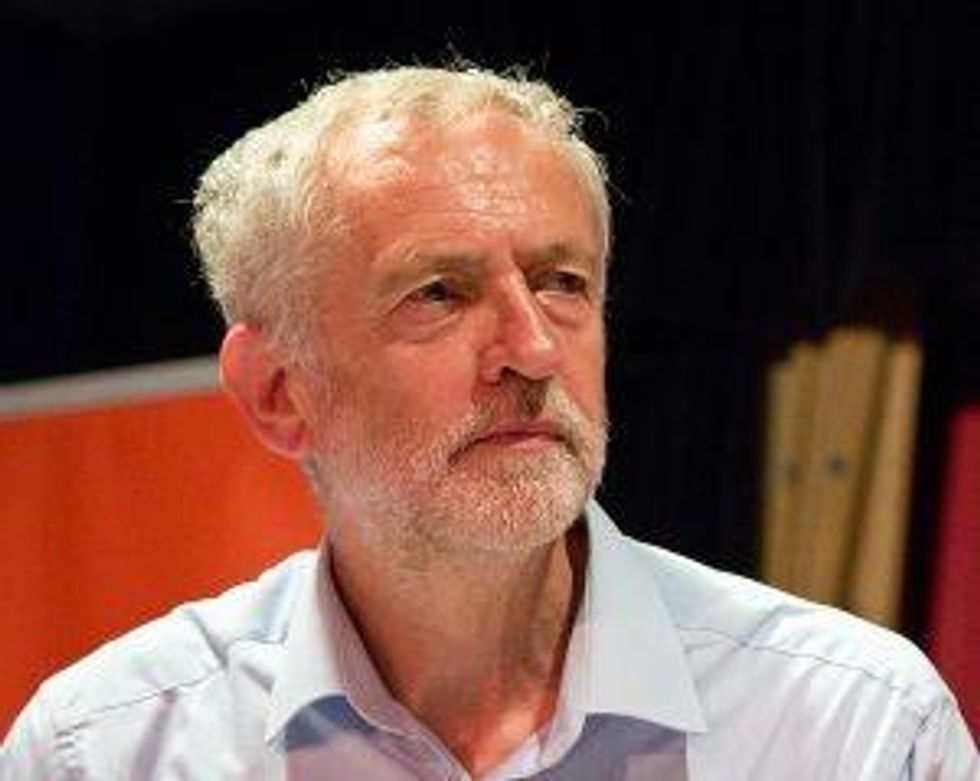In what the Times of London is calling "the first clear sign that the party is moving to the left," Britain's Labour Party has chosen Sadiq Khan, the Muslim son of a bus driver, as its candidate for next year's London mayoral election.
And the implications are likely to reach far beyond the city limits.
Khan's decisive win--58.9 percent to 41.1 percent against former frontrunner Dame Tessa Jowell--bodes well for Labour leadership candidate Jeremy Corbyn, with the Guardian reporting: "The results suggest...Corbyn is going to sweep to victory in the national leadership ballot on Saturday."
In his acceptance speech, the 45-year-old former human rights lawyer and Tooting MP, outlined progressive priorities that are in keeping with Corbyn's platform:
As mayor I will provide more opportunities for all Londoners. My priorities for Londoners are clear. An affordable and secure home to rent or buy. More jobs with higher wages for the lowest paid. Making it easier to set up and run a successful business. Reducing the cost of commuting and making London's environment safer, healthier and less polluted.
Writing at the New Statesman, political editor George Eaton gave credit to Khan's grassroots mobilizing strategy, noting that the candidate "went on more than 200 visits to workplaces, community centres, churches, temples, mosques and shopping malls to attract new supporters."
But Eaton also pointed to links between Corbyn's and Khan's candidacies, writing: "In recent months, Labour's electorate has changed beyond recognition as thousands of left-wingers have joined to vote for Jeremy Corbyn in the leadership contest. The Corbynites were hugely receptive to Khan's candidacy: he opposed the Iraq war (unlike Jowell), voted against the welfare reform bill and nominated the backbencher for the leadership. Khan's comprehensive victory points to a clear win for the left-winger tomorrow."
Indeed, polls have been predicting a Corbyn win for weeks. Despite detractors from within and outside of his own party, the anti-austerity, pro-peace politician has garnered the support of the UK's biggest trade unions, scores of young people, and leading economists.
As the Guardian reports:
Corbyn's vision is for Labour to campaign for a radical upheaval of the economic system, not be a softer "Tory-lite" party which also commits to spending cuts. His economic commitments are popular with the young, he has promised to bring the railways into public ownership and abolish university tuition fees. He champions "People's Quantitive Easing", which would allow the Bank of England to print money for housing projects, energy, infrastructure and digital development.
By early August, local town halls soon became too small to cope with the surge of supporters hoping to hear Corbyn speak, including one memorable moment where the grey-bearded man in the knitted fawn-coloured jumper climbed on to a fire engine to speak to jubilant north London crowds who chanted "Jez We Can". He was snapped taking the night bus home from a rally, no chauffeur-driven car. Poll after poll suggests the candidate once given odds of 100-1 is now the favourite to win.
On Friday, according to the BBC, Corbyn "was among a series of senior party figures to congratulate Mr. Khan saying, regardless of Saturday's result, he looked forward to working closely with him 'as we seek to reconnect everywhere for a better kind of politics'."



